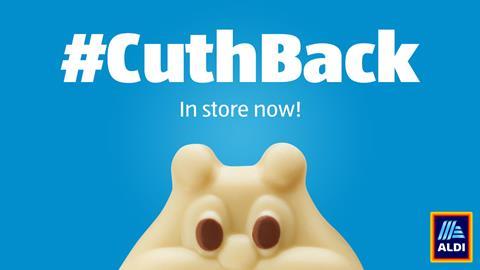
Aldi UK’s CEO has vowed not to back down on taking “cues” from rivals’ products despite a slew of copycat claims and lawsuits.
The discounter sees nothing it needs to change in its tactics, despite a recent High Court defeat by M&S over design infringement.
A defiant Giles Hurley told The Grocer customers were “not stupid” and knew very well what they were getting when they came to Aldi. He said Aldi would not be distracted from offering them alternatives to market-leading products at a lower price.
“We’ll continue to benchmark market-leading quality as we’ve always done,” he said. “I don’t think there’s anything we need to avoid.
“Sometimes it’s big brands, sometimes it’s exclusive own-label products. We’re most focused on what our customers want, not what other retailers say.”
High Court ruling
In the latest high-profile copycat dispute with brands and retailers, the High Court ruled in February that Aldi had infringed M&S’s registered designs for a range of gin-based liqueurs.
It followed an M&S lawsuit in 2021 over similarities between the two retailers’ caterpillar cakes, which ended in an out-of-court agreement and Aldi continuing to sell its version.

Thatchers Cider also launched a High Court claim against Aldi last November, arguing the discounter was taking “unfair advantage” of its brand reputation by mimicking.
Hurley insisted: “Customers know that when they shop with us 90% is exclusive own-label. They’re not stupid.
“When we benchmark a leading product in the market, we are forensic in our attention to quality and we do it very effectively – at a fraction of the price.
“On caterpillar cakes, everyone sells one. We’re no exception. We’ve always cued big brands, as have our competitors. If you look at wheat biscuits, I think you’ll find on every one the packaging is yellow.”
Hurley also highlighted the success of its Mamia nappy brand: “With 2022 sales up 20%, we’re now the second biggest nappy brand in the UK [after Pampers].”
He dismissed copycat claims from rival retailers as an attempt to delay Aldi’s growth, alongside a barrage of competitor planning objections to new stores, as exclusively revealed by The Grocer last year.
Potential opportunities
With Aldi the fastest growing supermarket based on new NIQ data this week – its sales up 24.7% in the 12 weeks to 25 March – now was also a “great time” for suppliers to talk to the discounter, with “lots of potential opportunities”, Hurley said.
“We spend £10bn with UK suppliers. By 2025 we’re aiming for £13.5bn,” he added.
Latest Kantar data, covering the 12 weeks to 19 March, has Aldi as the second fastest-growing supermarket, with its sales up 25.4%, behind Lidl’s 25.8%.
Aldi’s growth is being propelled not only by shoppers switching from rivals but by continuing investment in its store estate. With Lidl scaling back its own expansion plans, Aldi is on course to expand at a faster rate this year than any other grocery retailer, with its 1,000th store expected to open in June and 40 openings planned in 2023 (on top of 40 in 2022).
Lidl says it has opened more than 15 stores already this year but has cut its projected number for the full year to 25, down from the 50 it has been pursuing annually for a number of years. Lidl has also made a number of construction graduates and consultants redundant in its recent expansion slowdown.
Hurley added that a pipeline of at least another 300 stores had been identified. Asked what the optimal number of stores in the UK would be, he added: “Ask me that when we get to 1,300. Because you never know. What you find is, like Coventry, you think you’re done at four stores, then you go to five, now it’s seven.
“The market share situation in the South says we have a big opportunity, and London is an unknown quantity because the same rules don’t apply.
“London shopping habits are different, customers don’t drive, tube stations create huge footfall. You look and say ‘why open there?’, and then you say, ‘of course we want to open there’ because the footfall and the spend is there, even with smaller stores and without the parking space. It’s just a very different model from the 1,300 sq m store in a market town, with smaller baskets, more credit cards and speedy checkouts.”
Self-checkout rollout
Aldi is also rolling out self-checkouts across its entire estate, Hurley revealed, seeing them as the “right next step”. Until 2019 Aldi relied solely on its famed fast-scanning checkout staff, but with customers “almost conditioned by Covid” to use self-service machines, Aldi had so far added them to about 320 of its 990 stores.
Nearly a third of the machines so far installed have larger bagging scales to cater for a trolley shop and all Aldi UK stores are set to have at least one self-service checkout by the end of 2024.
“We’ve produced awesome machines,” said Hurley. “They are extremely efficient, and have been greeted warmly by customers.”
Aldi’s trials of Just Walk Out technology, in conjunction with AIFI, are ongoing, though similar technologies are also being trialled elsewhere across the Aldi global estate.
However, shoppers not already within reach of Aldi’s click & collect service – which it launched in 200 stores in 2020 – should not expect to be able to order online any time soon. “What we’ve seen in the last 15 months is more and more are choosing to shop in bricks & mortar,” said Hurley.
“Click & collect is a great learning. We’ve kept it in 200 stores, but there’s no plan to expand it. What we have resisted at all costs is home delivery. It weighs heavily on your balance sheet, so we’ve no temptation to explore that.”







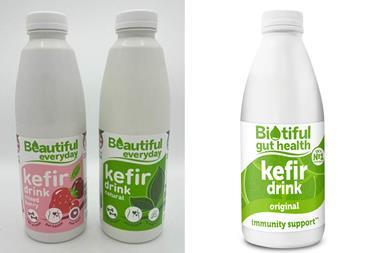

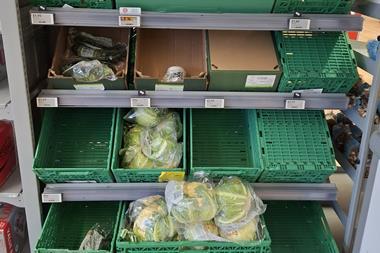
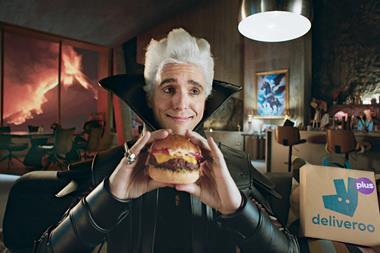
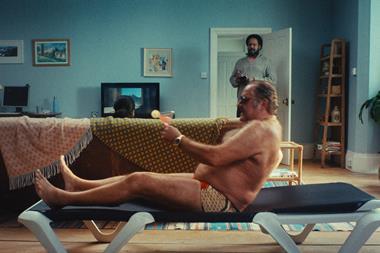







No comments yet